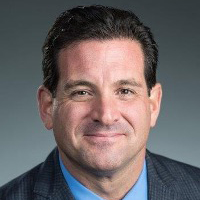As financial professionals, CPAs understand the critical role of estate planning in preserving legacies and efficiently managing asset distribution. Traditional estate plans help honor your wishes, avoid lengthy probate processes, and potentially reduce tax burdens. However, in our increasingly digital world, a new challenge has emerged: the management of digital assets after death. At CPA Retirement Solutions, we’ve observed a concerning trend – many estate plans fail to adequately address digital assets, potentially putting a significant portion of one’s legacy at risk.
The Digital Dilemma for CPAs
As a CPA, your career has likely led to the accumulation of numerous digital assets, ranging from online accounting software subscriptions and digital financial documents to professional social media accounts and possibly even cryptocurrency investments. While crucial for your professional life, these digital assets also represent a significant portion of your personal wealth and legacy.
In the context of estate planning, digital assets encompass any online account or digital file with monetary or professional value. For CPAs, this extends beyond personal assets to include professional resources that may be valuable to your practice or successors. Common examples include:
- Online accounting software subscriptions
- Digital copies of tax returns and financial documents
- Professional social media accounts (LinkedIn, Twitter)
- Email accounts with important client communications
- Cloud storage accounts (Dropbox, Google Cloud)
- Cryptocurrency investments
- Online banking and investment accounts
Many assume that family members or business partners can simply access these accounts after one’s passing. However, the reality is far more complex. Online services, especially social media platforms, often have strict policies regarding account transfers, even to next of kin or business associates. Without proper planning, your digital wealth and professional legacy could end up in limbo, inaccessible to those who need it most.
Steps for Digital Estate Planning
Take Inventory
Create a comprehensive list of your digital accounts and assets, including professional software subscriptions, online banking, investment accounts, and any cryptocurrency holdings. Don’t forget about professional social media profiles, email and cloud accounts, and other electronic communications that may contain valuable client and personal information.
Designate a Digital Executor
This should be a tech-savvy individual who understands the nature of your professional digital assets. They will be responsible for canceling subscriptions and managing and distributing your digital property according to your wishes. To streamline the process, your executor and digital executor can be the same person, though you may need to explicitly specify that in your will. However, if you feel these combined tasks would overwhelm your executor, or you don’t want to give one person the reigns to your entire legacy, consider choosing a separate digital executor – just in case.
Use a Password Manager
Store all your online account information in one secure place, protected by a single master password, and ensure your digital executor knows how to access this manager when the time comes. Having a password manager isn’t just for digital estate planning – it’s solid life advice as well. According to TechReport.com, up to 65% of people reuse passwords across multiple accounts, and nearly 13% use one password for all their accounts, making poor passwords the cause of nearly 81% of company data breaches. In fact, an astounding four million users have their password set to… ‘password.’ A password manager can help you create a secure password for each one of your accounts, so then you only have to worry about remembering that one password for your password manager. Just be sure not to make it simple or guessable, and don’t put it, or any other password, in your will, as it will become a public document upon your passing. Don’t forget to figure out how to deal with two-factor authentication (2FA). Many services offer backup codes for 2FA. Store these securely and ensure your digital executor can access them.
Legal Considerations
According to a 2024 Caring.com survey, only 32% of Americans have an estate plan. Given this low percentage, it’s likely that even fewer have considered including their digital property and online lives in their plans. This oversight can lead to significant challenges for executors and heirs, who may struggle to access or manage these assets without clear legal authority.
Proactive planning can reduce stress on your family and successors during difficult times. It’s crucial to work with an estate planning professional to explicitly include your digital assets in your will or trust, especially those related to your CPA practice. Be specific about how you want these assets handled. Including detailed instructions and granting explicit permissions can ensure your digital legacy is preserved and managed according to your wishes.
Professional Social Media Legacy
Decide what should happen to your professional social media accounts. Should they be memorialized, deleted, or transferred to a successor? Your options will heavily depend on each company’s policy, which could change as the digital landscape evolves, so be sure to check their policies whenever you update your digital estate plan.
Beyond Financial Value: Your Professional Legacy
Your digital assets aren’t just about money. They’re also about the professional legacy you’ve built. Client emails, digital work papers, and even your professional blog posts can be valuable resources for your successors or family members continuing your practice. The way these assets are managed will significantly impact everyone involved. How do you want this information preserved and passed on?
At CPA Retirement Solutions, we’re committed to helping you integrate these digital factors into your broader retirement and estate plan. Whether you’re just now considering your digital assets or are looking to update your current plan, we can offer you the advice you need to secure your entire legacy.







